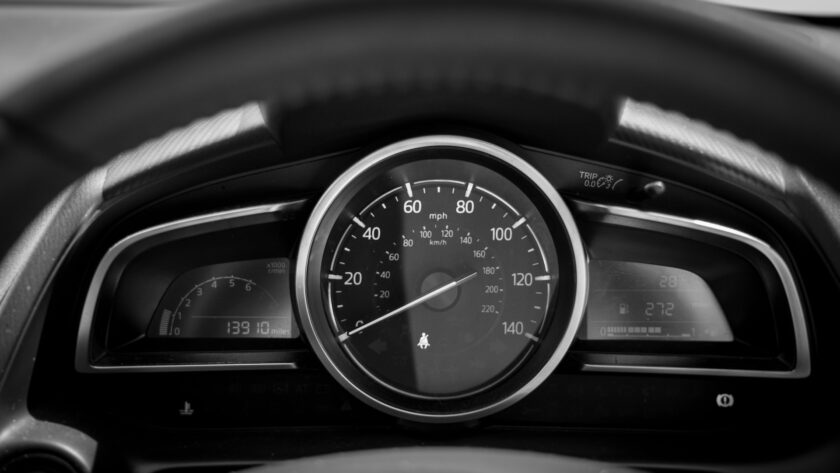If you’re a business owner who travels for work, you may wonder how to keep accurate records of your mileage and expenses. The IRS has some guidelines you should follow when preparing your mileage logs.
Getting the Most Out of Your Mileage Log
A mileage log is a handy document that helps you calculate your business miles. This can prove to be significant savings to you and your business.
The IRS has several guidelines for you to follow. In the case of a mileage log, you need to ensure you are keeping a complete and detailed record. Knowing how to get the most out of your mileage log is essential since the IRS will ask for a copy of it if you ever find yourself being audited.
You may also use a telematics system to record your mileage. There are two basic types of mileage logs. One is the handwritten type, and the other is the digital version.
If you have a fleet, your employees should be required to keep a copy of their mileage logs. They should also be required to back up their electronic versions periodically.
Keeping a mileage log can be challenging. It can be time-consuming to ensure that you have up-to-date and accurate information. However, it can be one of the most important things you do as a business owner.
Getting the most out of your mileage log is possible. There are apps out there that make it easy. For example, Driversnote works on iOS and Android. MileCatcher can even back up your mileage log online.
Another useful mileage logging trick is calculating how many miles you travel regularly. For example, if you are making regular visits to your clients or prospective customers, you should track your mileage each month.
Actual Expenses vs. Standard Mileage
The Internal Revenue Service (IRS) allows two ways to calculate mileage deductions, the actual expense method, and the standard mileage rate. Each has its advantages and disadvantages. If you’re looking to claim vehicle expenses, consult a tax advisor to help determine which is best for your situation.
Both methods require taxpayers to keep detailed records of car-related expenses. While the standard mileage method is simple, you may have better options if you have an expensive vehicle. Using the actual expense method can be a better option if you have an inexpensive car.
The actual expense method allows you to claim more than the standard mileage rate. You’ll need to know how much you pay for insurance, gas, registration, and other costs to determine how much you’ll receive in taxes.
This approach is especially beneficial if you drive for business. It requires you to calculate how much it costs to operate your car, then multiply it by the percentage of the time you use it for your business. For instance, if you travel for business half the time, you’ll need to multiply by 70% to get the deduction amount.
However, the actual expense method also has some drawbacks. One of the biggest problems is keeping track of your car’s expenses is challenging. Fortunately, there are apps and software available that can help you keep track.
GPS Mileage Tracking
If you have employees driving your company vehicles, you must follow mileage tracking guidelines for the IRS. This will help ensure that your business receives the tax deductions it deserves.
When it comes to keeping an accurate mileage log for taxes, there are a few options. The best option is to use GPS. With GPS, you can track your drivers’ routes, but you won’t need to sift through unnecessary paperwork.
Another option is to use a paper mileage log. Paper mileage logs are standard, but they must be kept safe and organized.
If you keep a paper mileage log, you can continue to record odometer readings. Although this is time-consuming, it is often the most accurate option.
Some apps can track your mileage. These are convenient ways to meet your mileage tracking guidelines for the IRS. They are instrumental if you have an internal expense reimbursement system.
In addition to tracking your trips, these apps can provide extra features. You can see how far you drove and how fast you traveled. Some of these apps even allow you to replay your route.
A GPS mileage tracker can help you stay IRS compliant. Not only will you be able to make sure your company is getting the tax deductions it deserves, but you will also be able to reduce errors.
Exceptions for Trucks and Vans
If you have a business that includes trucks and vans, there are some exceptions to the ELD rule that you should know about. However, it would help if you relied on something other than this information for legal or tax advice. Therefore, you should consult an expert in this field before making any decisions.
You should consider using an Electronic Logging Device (ELD) to keep track of your service hours if you operate a commercial motor vehicle. Several carriers and other employers require you to use the device. It is also essential to keep track of your mileage every week. This can be done through an automatic mileage tracking program, ensuring you get your reimbursement for miles driven.
The IRS also has strict rules regarding the substantiation of vehicle expenses. Specifically, you must prove that the costs relate to a commercially owned vehicle. Moreover, you can only deduct up to $2000 for a passenger car and $2500 for an SUV. In addition, if you employ family members, the IRS is highly critical of your deductions. Also, it is essential to know that vehicles over 6,000 pounds are not subject to annual depreciation dollar caps. Hence, you can deduct up to $25,000 for a year’s expenses.
Tow-away operations are also exempt from the ELD rule. These businesses transport RV trailers, motor homes, or other mobile homes.




